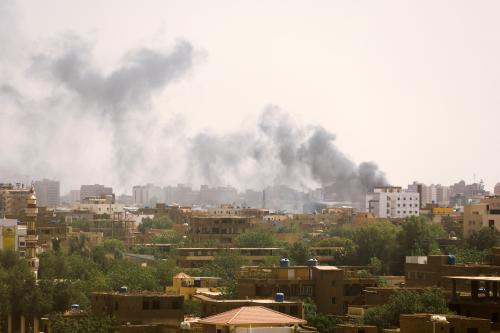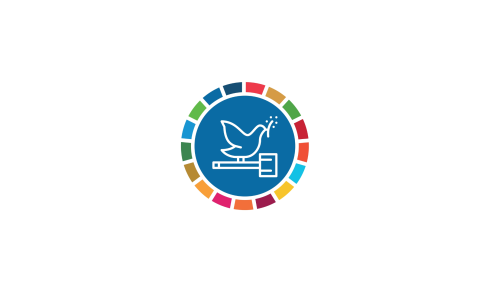For the weekend, read about what the period between World Wars I and II can teach today’s policymakers; ideas on the Voting Rights Act’s future; where suburban poverty is growing (or not) by congressional district; and how bringing education to children in conflict-affected states is one of the most urgent global priorities.
Lessons on Defense Strategy from the Interwar Years
“Interwar Years” = between World War I and World War II. Peter W. Singer, director of the Center for 21st Century Security and Intelligence, says that today’s policymakers and military leaders should take lessons from this period as they contend with new and disruptive technologies and rising peer competitors. He explains:
In the years surrounding World War I, fundamental political transition was accompanied by a wave of technological progress that seemed to leap from science-fiction novels. Just as submarines, tanks, and airplanes disrupted tactics, doctrine and organizational identity in the early 20th century, so today we are struggling with deep changes wrought by the likes of drones, cyber and lasers. And, strategically speaking, the U.S. at present is akin to Great Britain then: no longer a rising power but a status quo empire of global commitments, striving to maintain dominance in a changing world.
Read Singer’s article from
Armed Forces Journal.
Future of the Voting Rights Act
Less than a week after the U.S. Supreme Court’s historic decision in the case Shelby County v. Holder, which struck down a key provision of the 1965 Voting Rights Act, Brookings assembled leading scholars and practitioners of election law to discuss the decision’s implications.
Conference moderators Thomas Mann, a Brookings senior fellow, and Nathaniel Persily, a Stanford Law School professor, have just published a policy brief on the discussion and possible responses to the Court’s decision.
Download and read “Shelby County v. Holder and the Future of the Voting Rights Act.”
Also, visit the conference’s page for video and a transcript of the event.
Suburban Poverty Traverses the Red/Blue Divide
“During the 2000s,” write the authors of a new report on suburban poverty, “major metropolitan suburbs became home to the largest and fastest-growing poor population in America.” Senior Fellow Alan Berube, Fellow Elizabeth Kneebone and Jane Williams examined Census 2000 and American Community Survey data to plot poverty’s change in all 435 congressional districts in the United States. They discovered that poverty grew in 388 districts, both Republican and Democratic. “unfortunately,” they conclude:
poverty—suburban or otherwise—isn’t very high up the congressional agenda right now. Perhaps that reflects, at least in part, a misunderstanding of the partisan character of poverty. Certainly, Democrats are more inclined to see an active role for government in addressing poverty’s challenges. But Republicans, too, should want to see scarce federal resources for community economic development, affordable housing, and core educational and health services reach areas of growing poverty.
Read their report and see the data.
Also, learn about the “Metropolitan Opportunity Challenge,” a proposal for the federal government to work with state and local governments to reinvent the approach to regional poverty and opportunity.
Education in Fragile States
Progress on some of the world’s most intractable problems—from extreme poverty to health to school enrollment—has not been “shared evenly around the globe” write the authors of a new report about how to address the needs of people living in fragile states. Calling this “an urgent priority for our time,” Rebecca Winthrop, director of the Center for Universal Education, and Elena Matsui observe that:
Children born in low-income, conflict-affected countries are twice as likely to die before the age of five years, twice as likely to lack access to clean water and more than three times as likely to not attend school than children living in peaceful, low-income countries. People living in poverty, many of whom are affected by conflict, are more vulnerable to the effects of climate change and disasters. Children are especially affected, and those from the poorest families are up to 10 times more likely to bear the brunt of environmental disasters linked to climate change.
In their report, “A New Agenda for Education in Fragile States,” Winthrop and Matsui propose solutions for “maximizing education’s contribution to the development and well-being of people living in these contexts.”
Be sure to visit our home page for the latest of everything »


Commentary
Weekend Reads from Brookings Now: Lessons from Inter-World War Years; Voting Rights Act; Suburban Poverty; Education in Fragile States
August 9, 2013